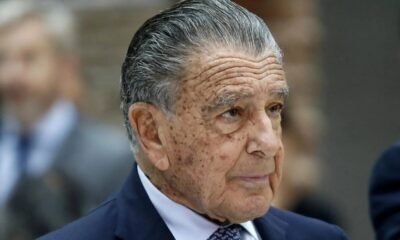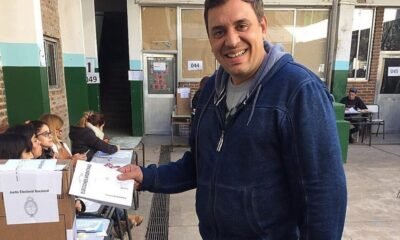INTERNACIONAL
GOP candidate rips blue state directive meddling in police force’s cooperation with ICE: ‘Handcuffed’
FIRST ON FOX: An email sent to New Jersey State Police staff revealed that officers were asked not to comply with federal arrest warrants, bringing attention to the state’s «sanctuary» policies.
The email sent on March 24 was made public by Republican gubernatorial candidate Jack Ciattarelli, who said he does not fault the head of the department, Col. Patrick Callahan, but the state’s policies that are in place, as well as Democratic leaders.
«The fact that my campaign received this email is evidence that brave and courageous law enforcement officers throughout New Jersey are angry about being handcuffed by liberal Democrat policies in Trenton, making our communities less safe,» Ciattarelli said in a statement.
BORDER CZAR TOM HOMAN SAYS HE WOULD ‘SEEK PROSECUTION’ IF NJ GOVERNOR SHELTERED ILLEGAL MIGRANT IN HOME
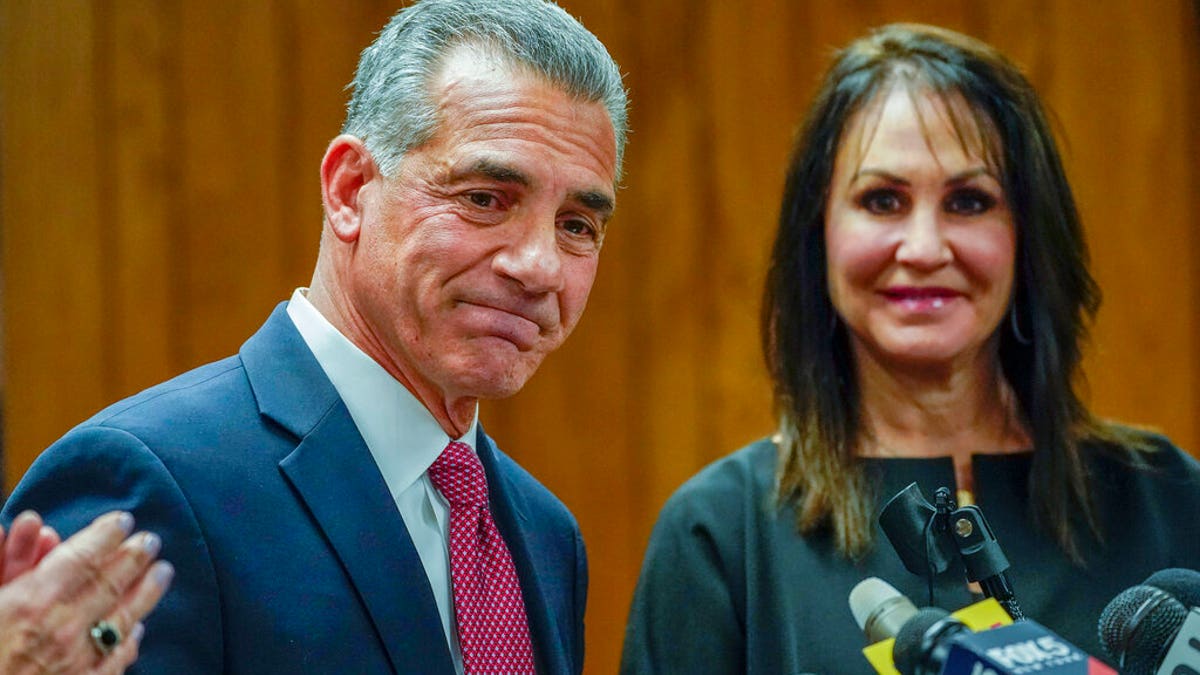
Republican gubernatorial candidate Jack Ciattarelli is joined by his wife Melinda as he speaks during a news conference, Friday, Nov. 12, 2021, in Raritan, New Jersey. (AP Photo/Mary Altaffer)
«The blame goes to Governor Murphy, Attorney General Platkin, and the Democrat legislature for mandating absurd policies like the Immigrant Trust Directive,» the Republican continued.
«We will be partners with the Trump Administration in fixing our immigration system and restore law and order,» he said if elected governor in November, as Democrat Gov. Phil Murphy will be termed out of office after serving two terms.
The email from Callahan, which was obtained from the Ciattarelli campaign and reviewed by Fox News Digital, said his team is not legally permitted to follow «Outstanding Administrative Warrants of Removal from the United States,» as 27,000 «hits» were recently added to the National Crime Information Center.
DEMOCRAT MAYOR ARRESTED FOR DUI SEEN ON BODYCAM DEMANDING OFFICERS CALL POLICE CHIEF
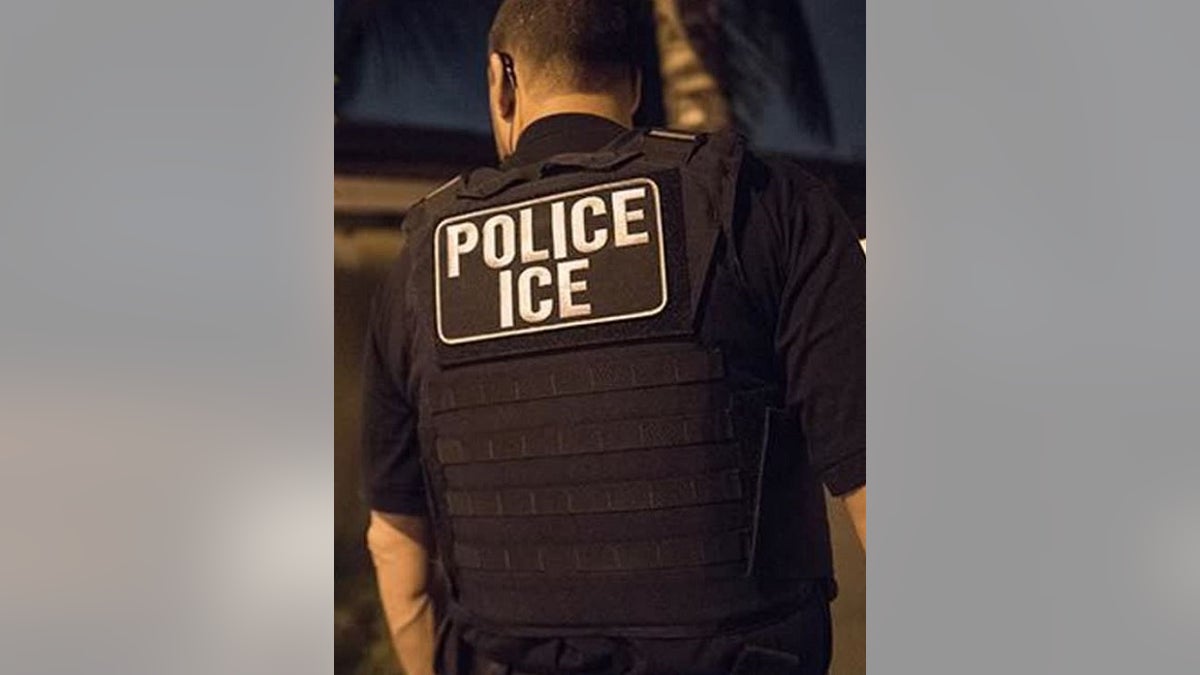
Rabanales-Pretzantzin is originally from Guatemala and entered the United States at the border in El Paso, Texas, according to Nassau County Police Commissioner Patrick Ryder. (ICE)
«Taking law enforcement action by arresting a subject based solely on an ‘Outstanding Administrative Warrant’ would violate the Attorney General’s Immigration Trust Directive,» the email states. The email, which was sent out to police personnel, «operational dispatch units» and «public safety telecommunicators,» also noted that NJSP employees cannot reach out to Immigration and Customs Enforcement through the phone number given.
NEW JERSEY GOVERNOR SUGGESTS HE’S HOUSING A MIGRANT AT HIS HOME, TELLS FEDS ‘GOOD LUCK’ TRYING TO GET HER

Message sent by New Jersey State Police Superintendent Col. Patrick J. Callahan on immigration policies obtained by Fox News Digital. (New Jersey State Police, courtesy of Jack Ciattarelli )
The directive from the Attorney General’s Office says authorities in New Jersey, at any level of government besides federal, can help federal law enforcement «when the sole purpose of that assistance is to enforce federal civil immigration law.»
In the state governor’s race, many of the Democratic candidates’ views differ from the Trump administration’s illegal immigration policies.
During a recent debate, Jersey City Mayor Steve Fulop and Rep. Josh Gottheimer disagreed on the Laken Riley Act, federal bipartisan legislation signed by President Donald Trump that expands the crimes that could get somebody into custody of the Department of Homeland Security.
NEW JERSEY GOVERNOR SUGGESTS HE’S HOUSING A MIGRANT AT HIS HOME, TELLS FEDS ‘GOOD LUCK’ TRYING TO GET HER

Gov. Phil Murphy during an interview in New York on Nov. 22, 2024. (Jeenah Moon/Bloomberg via Getty Images)
«The Laken Riley Act served to undermine the authority of the attorney general here in New Jersey,» Fulop said at the time. «It is a very dangerous piece of legislation as it relates to autonomy of the governor and the attorney general here, and it should not have been supported.»
Last month, Murphy suggested he had a migrant living with him and it was unclear if the person was in the country legally.
«Tammy [Murphy] and I were talking about – I don’t want to get into too much detail, but there is someone in our broader universe whose immigration status is not yet at the point that they are trying to get it to. And we said, you know what? Let’s have her live at our house above our garage,» the Democratic governor told Blue Wave New Jersey.
«And good luck to the feds coming in to try to get her,» he continued.
Attorney General Matt Platkin explained his perspective on the directive in a statement to Fox News Digital.
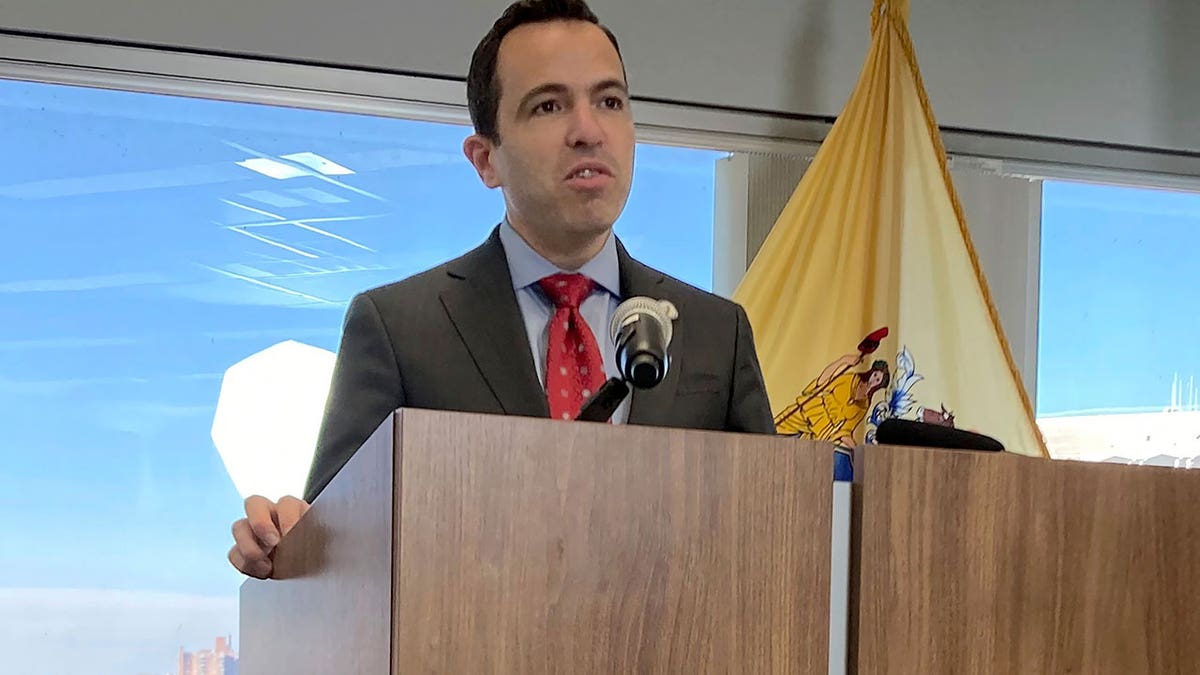
New Jersey Attorney General Matt Platkin speaks during a news conference at his office, Dec. 12, 2023, in Trenton. (AP Photo/Mike Catalini, File)
CLICK HERE TO GET THE FOX NEWS APP
«Our number one priority is keeping New Jerseyans safe. The Immigrant Trust Directive ensures that New Jersey police officers spend their time tackling pressing public safety issues like violent crime, gun violence, and drug trafficking, while also ensuring that victims of crime and witnesses can safely come forward to police and report crime regardless of their immigration status,» he stated. «Under the Immigrant Trust Directive, state and local law enforcement have and will continue to work with federal authorities to remove violent criminals from this country. Plain and simple, there is no ‘sanctuary’ for criminals in New Jersey.»
«The directive was drafted and is enforced with the support and cooperation of law enforcement leaders. The Office of the Attorney General, the County Prosecutors Association of New Jersey, and the New Jersey Association of Chiefs of Police, together, recently released guidance for law enforcement on the Immigrant Trust Directive and its importance,» the attorney general continued.
Murphy’s office and DHS did not comment in time for publication.
Immigration,New Jersey,Donald Trump
INTERNACIONAL
Jesse Ball resignifica a Charly García con aquello de “la mustia sensación de que el tiempo se echó a perder”
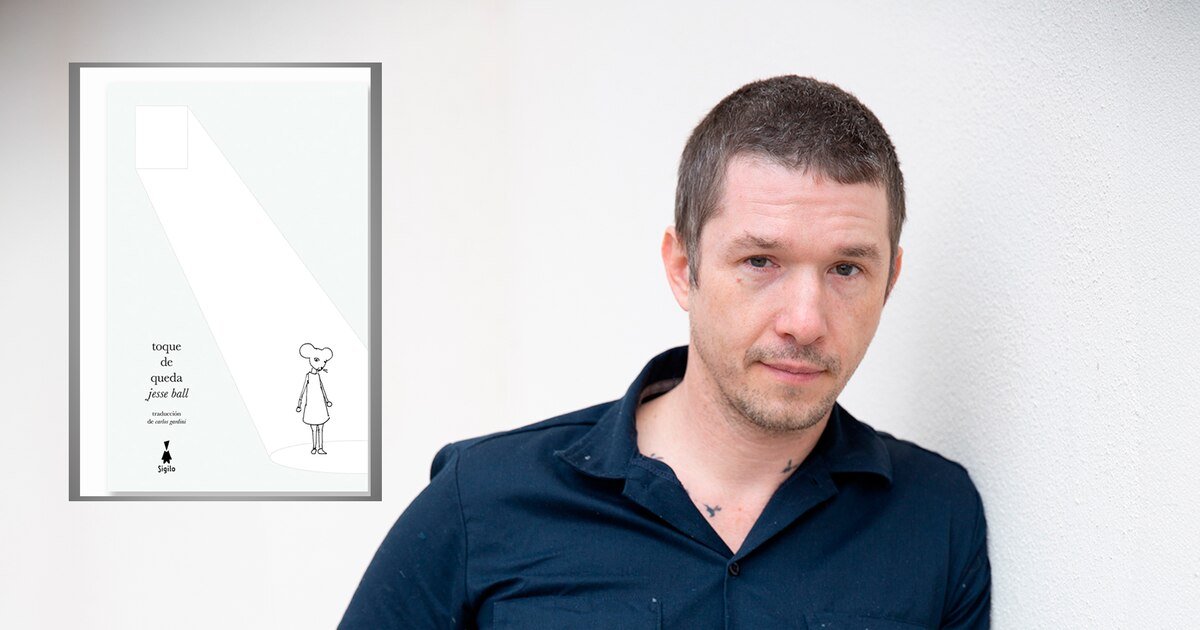
Con excelente traducción de Carlos Gandini, la editorial Sigilo acaba de publicar una nueva edición de Toque de queda de Jesse Ball y es una buena oportunidad para adentrarse en la obra de un autor original, diferente.
Toque de queda se desarrolla en una ciudad sin nombre gobernada por un régimen represivo donde la música y el arte están prohibidos, y el silencio se impone mediante el miedo. William Drysdale, que en su día fue un violinista de renombre, ahora trabaja escribiendo epitafios para aquellos que han desaparecido o esperan su ejecución. Su hija Molly, de ocho años, muda pero con una imaginación desbordante, se convierte en el corazón emocional de la novela. Cuando William rompe el estricto toque de queda de la ciudad para asistir a una reunión secreta de la resistencia, Molly se queda atrás y monta una oscura obra de títeres con un vecino: un relato alegórico de la historia de su familia y la opresión de la ciudad.
Desde las primeras páginas, nos adentramos en un mundo fracturado construido a partir de fragmentos de memoria y silencio. Su narrativa toda se resiste a la linealidad y a las convenciones; distorsiona el tiempo, mezcla escenas y nos aleja de la comodidad de la simple ecuación “causa y efecto”. Lo que Ball consigue con esta forma fragmentada no es simplemente un juego estético, sino un espejo del caos interno de sus personajes. La vida en ese lugar imaginado no se desarrolla de forma ordenada, sino que avanza caótica, ensombrecida por el dolor y la incertidumbre. Los momentos llegan fuera de secuencia, no para confundirnos, sino para situarnos en el ritmo del trauma. Aquí, el tiempo es elástico. Los recuerdos se funden con el presente. El dolor se repite sin cesar. Cada fragmento forma parte de un mosaico más amplio, incompleto pero resonante, y el lector se convierte en un participante activo, que va armando con las piezas un rompecabezas a partir de los silencios y las sugerencias. Ball le pide mucho a sus lectores. Y eso se agradece.

Así como en la mente, la novela se acomoda al funcionamiento real del pensamiento y la memoria. No hay pausas entre capítulos y perdemos un poco el norte narrativo. En su lugar, Ball nos ofrece una forma de sentir el tiempo como lo hacen sus personajes: fluido, inestable e inquietante. Capta profundamente la naturaleza subjetiva de la memoria: cómo, en momentos de profundo dolor o reflexión, nuestra mente no reproduce los acontecimientos en orden cronológico, sino que da vueltas, salta y se detiene en fragmentos, como en un sueño recurrente.
La urgencia emocional de la novela es por momentos surrealista. Incluso las escenas más banales vibran con tensión, con la certeza de que algo invisible siempre está presionando. Hay un temor silencioso que impregna Toque de queda, una sensación de que lo ordinario puede desmoronarse en cualquier momento y lo cotidiano se vuelve extravagante, demoledor, o simplemente extraño.
En su obra, Ball escribe sobre la soledad y muchas veces responde a la frase de la canción de Charly García “la mustia sensación de que el tiempo se echó a perder”: la conversación que no se tuvo, la mano que no se tomó, el momento que se perdió. No es melodramático. Es simplemente cierto. Esa verdad duele.

Los dos personajes principales de la novela están habitados por la soledad. La soledad de William, el padre de Molly, tiene varias capas: es el dolor de un viudo, el silencio de un hombre que antes estaba lleno de vida y la impotencia de un padre que intenta proteger a su hija de un mundo brutal. Aunque está profundamente dedicado a Molly, está emocionalmente aislado, resignado, y cauteloso. Su silenciosa rebelión al romper el toque de queda es tanto un acto de desesperación como de esperanza, un gesto solitario contra un sistema abrumador. La soledad de William no es ruidosa, es una quietud, un peso, una presencia constante en su vida interior. Y Molly, la hija de ocho años de William, es muda, pero su silencio es rico en expresiones. Muy inteligente y creativa, procesa el mundo a través del juego, los símbolos y la imaginación. Su soledad es diferente a la de su padre: está llena de nostalgia e inventiva. Extraña a su madre, siente el dolor de su padre y, sin embargo, encuentra formas de conectar a través de historias y títeres. Su soledad está llena de color y vida, pero sigue siendo una soledad nacida de la pérdida y el silencio.
Sin embargo, a pesar de su melancolía, Ball salpica su narrativa con momentos de bondad, encuentros que parecen pequeñas misericordias. Una mirada compartida. La palabra de un desconocido. Estas escenas nunca son exageradas, pero tienen el peso emocional de los discursos de una novela. En el mundo de Ball, una sola mirada puede redimir una vida. Y ese minimalismo es clave. No llena la página de adornos. En cambio, nos da espacio para sentir. Las frases son cortas, sí, pero se abren a un vasto territorio emocional. Donde otros escritores explican, Ball sugiere. Y no es solo una elección estilística, es una invitación. Obliga al lector a inclinarse y hurgar, a habitar los silencios, a reconstruir las emociones no expresadas.
Toque de queda es una exploración tranquila pero resonante de la vida bajo la tiranía, donde se impone el silencio y la soledad, y la imaginación se convierte tanto en refugio como en resistencia. A través de las vidas silenciosas de William y Molly, Ball examina cómo los individuos afrontan la pérdida, no solo de sus seres queridos, sino también de la libertad, la expresión y la verdad. Su relación se convierte en un santuario en un mundo despojado de sentido, y sus pequeños actos de creatividad se erigen como un silencioso desafío contra la maquinaria del control. Con su lenguaje sobrio y su atmósfera inquietante, Toque de queda nos recuerda que, incluso en los momentos más oscuros, el espíritu humano busca conexión y que las historias, por frágiles que sean, constituyen el puente entre la memoria y el presente, entre la soledad y la compañía, entre la libertad interior y la opresión exterior.
INTERNACIONAL
Trump signs rescissions package, closes out week with trip to Scotland
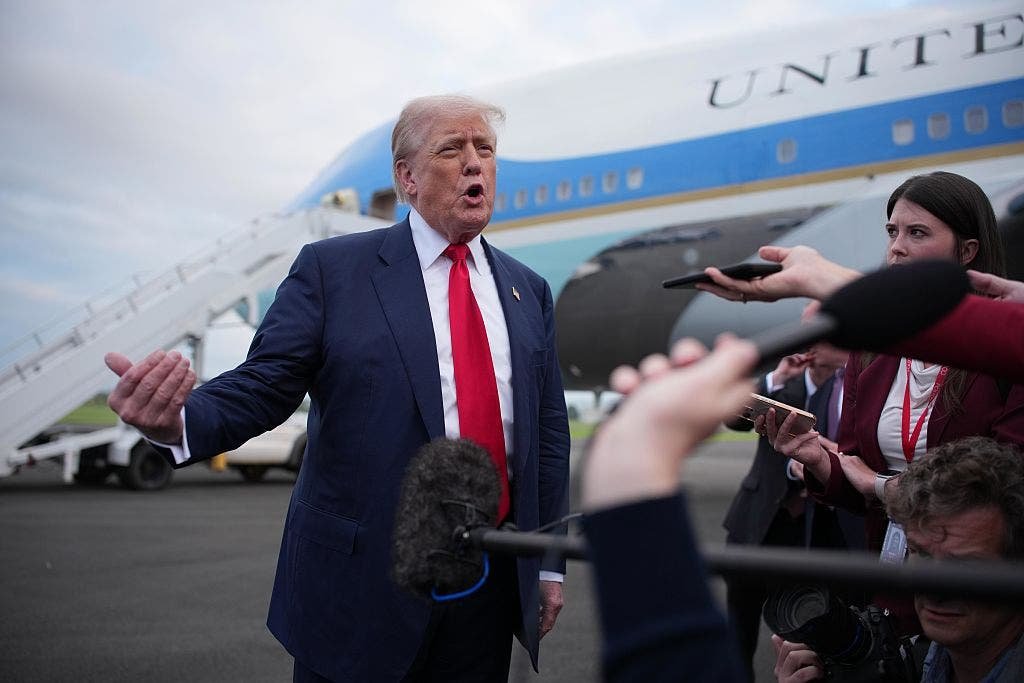
Trump sends message to Obama: He ‘owes me BIG’
President Donald Trump discusses a Supreme Court ruling on presidential immunity amid his accusations against former President Barack Obama for pushing a faulty Trump-Russia collusion narrative.
NEWYou can now listen to Fox News articles!
President Donald Trump arrived in Scotland late Friday for a working trip where he is expected to meet with British Prime Minister Keir Starmer amid ongoing trade negotiations between the U.S. and the U.K., as well as visit several of his properties there.
«We’re meeting with the prime minister tonight,» Trump told reporters Friday before departing for Scotland. «We’re going to be talking about the trade deal that we made, and maybe even improve it.»
«We want to talk about certain aspects, which is going to be good for both countries,» Trump said. «More fine-tuning. Also, we’re going to do a little celebrating together, because, you know, we got along very well. U.K.’s been trying to make a deal with us for like, 12 years, and haven’t been able to do it. We got it done, and he’s doing a very good job, this prime minister. Good guy.»
TRUMP HEADS TO SCOTLAND TO TALK GOLF, POLITICS AND TRADE
President Donald Trump waves as he arrives at Glasgow Prestwick Airport on July 25, 2025, in Prestwick, Scotland.
In May, the U.S. and the U.K. announced the two countries had agreed to a major trade deal, which marked the first historic trade negotiation signed following Liberation Day, when Trump announced widespread tariffs for multiple countries April 2 at a range of rates.
Trump, who is slated to remain in Scotland until Tuesday, is also scheduled to visit his golf courses in Turnberry and Aberdeen while abroad.
Here’s also what happened this week:
Federal Reserve visit
Trump visited the Federal Reserve headquarters Thursday, as he has ramped up digs at Federal Reserve Chairman Jerome Powell.
Trump accompanied other administration officials for a tour of the headquarters, following $2.5 billion in renovations to the building. The massive project has attracted scrutiny from lawmakers and members of the Trump administration, including the president, who suggested the huge renovation could amount to a fireable offense.
«I think he’s terrible … I didn’t see him as a guy that needed a palace to live in,» Trump said July 16. «But the one thing I would have never guessed is that he would be spending two and a half billion dollars to build a little extension onto the Fed.»
FOUR KEY TAKEAWAYS FROM TRUMP’S VISIT TO THE FEDERAL RESERVE WITH POWELL
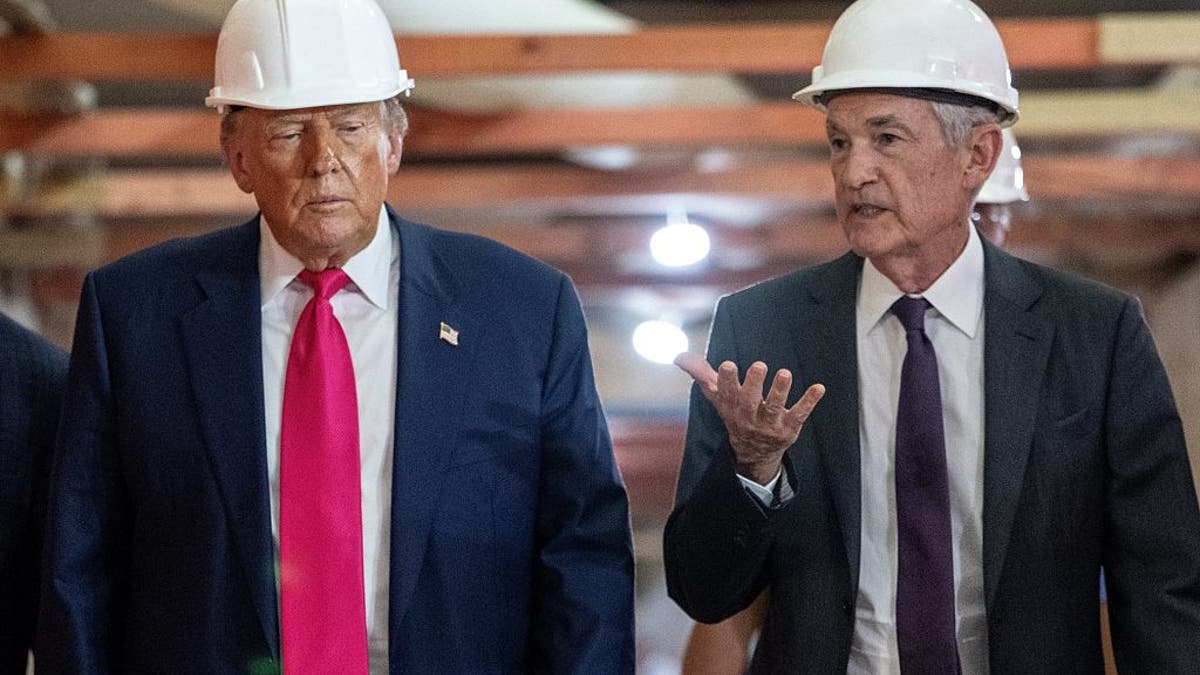
President Donald Trump speaks with Federal Reserve chair Jerome Powell (right) as he visits the Federal Reserve in Washington, July 24, 2025.
On Thursday, the two briefly sparred over the cost of the renovation, but Trump told reporters afterward that the two had a «good meeting» and that there was «no tension.» Trump also shut down speculation he might oust Powell, claiming such a move would be unnecessary.
The Federal Reserve, the United States central bank, oversees the nation’s monetary policy and regulates financial institutions.
Trump historically has railed against Powell, calling him names like «numskull» and «too late.» Likewise, Trump has expressed ire toward Powell for ignoring requests to lower interest rates.
«Well, I’d love him to lower interest rates, but other than that, what can I tell you?» Trump said Thursday.
Rescissions package signing
Trump signed into law Thursday his roughly $9 billion rescissions package to claw back already approved federal funds for foreign aid and public broadcasting.
The rescissions measure revoked nearly $8 billion in funding Congress already approved for the U.S. Agency for International Development (USAID), a formerly independent agency that provided impoverished countries aid and offered development assistance.
The rescissions package also rescinds more than $1 billion from the Corporation for Public Broadcasting (CPB), which provides federal funding for NPR and PBS.
TRUMP SIGNS $9B RESCISSIONS PACKAGE INTO LAW, REVOKING FUNDING FOR FOREIGN AID, NPR
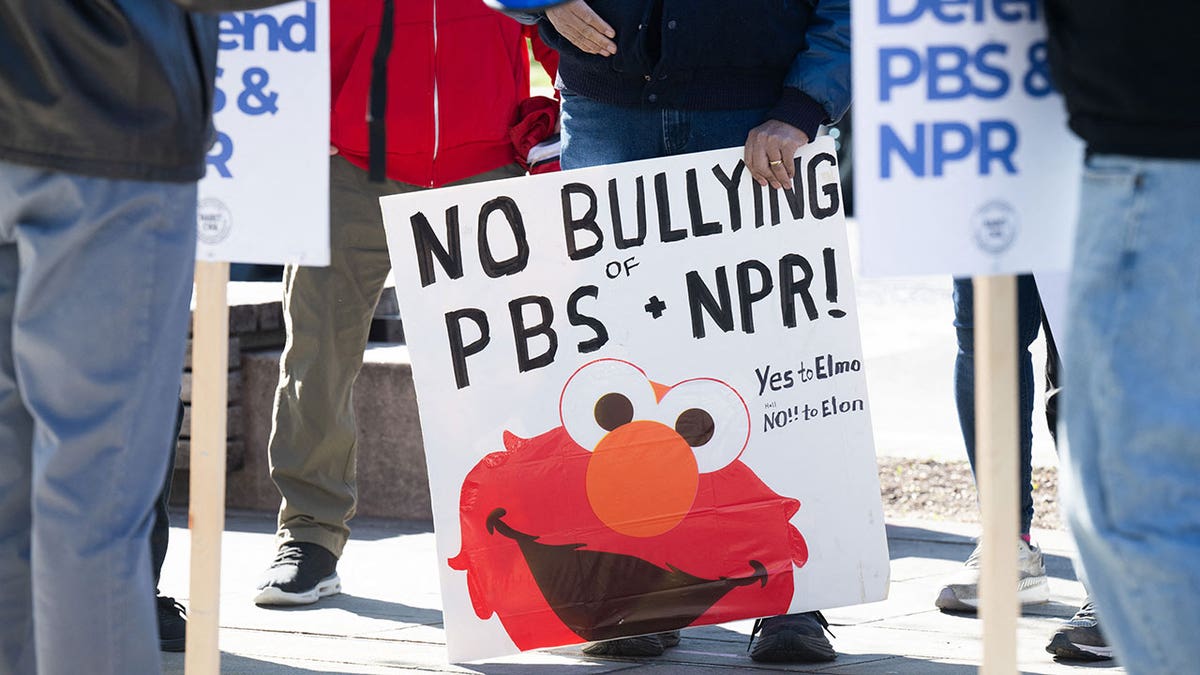
Liberals reacted strongly to Congress’ recent vote to strip federal funding from NPR and PBS. (Saul Loeb/AFP via Getty Images)
INTERNACIONAL
Israel reanuda el lanzamiento de ayuda sobre Gaza en medio de una grave crisis humanitaria
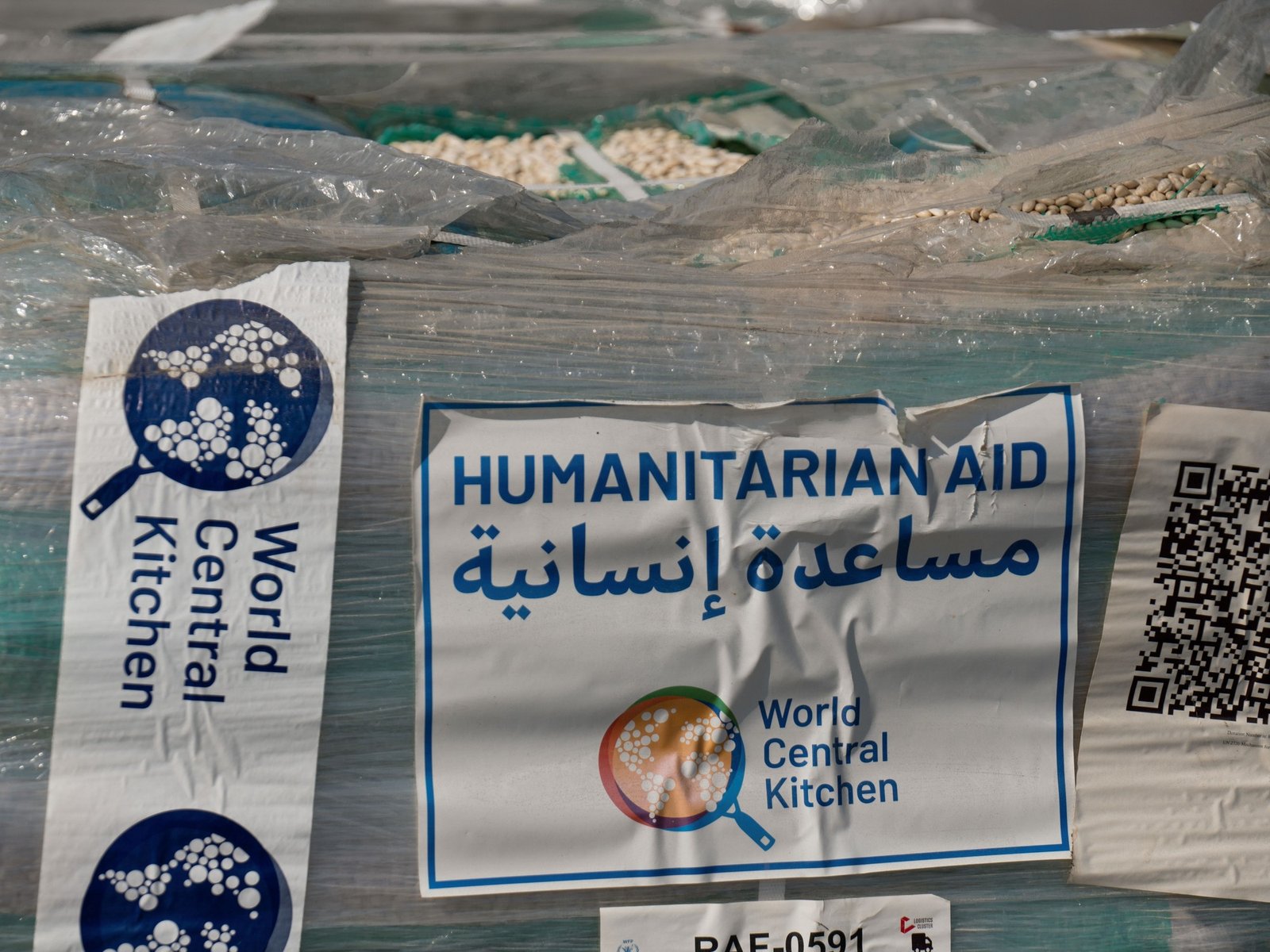
En medio de una creciente presión internacional para permitir el ingreso de asistencia humanitaria a la Franja de Gaza, Israel reanudó este sábado el lanzamiento aéreo de alimentos y suministros básicos. El Ejército informó que arrojó siete paquetes con harina, azúcar y comida enlatada, como parte del esfuerzo por «facilitar la entrada de ayuda» al territorio palestino.
La iniciativa también incluirá la participación del Reino Unido y Emiratos Árabes Unidos, que anunciaron su disposición para sumarse de inmediato a los envíos.
Sin embargo, la ONU y organizaciones humanitarias insisten en que esta modalidad no resuelve el problema de fondo. «El lanzamiento aéreo no pondrá fin al hambre. Es costoso, ineficaz y puede incluso matar a civiles hambrientos», escribió en la red X Philippe Lazzarini, director de la agencia de la ONU para los refugiados palestinos (UNRWA).
Este sábado, la Defensa Civil de Gaza denunció la muerte de al menos 40 personas por bombardeos israelíes en distintos puntos del enclave, incluyendo Ciudad de Gaza, Jan Yunis y un campamento en el centro del territorio. Además, tres personas murieron por disparos del Ejército cuando esperaban recibir ayuda, una de ellas alcanzada al acercarse a un punto de distribución ubicado cerca de un puesto militar israelí.
Testigos aseguraron que miles de personas se habían congregado en ese lugar con la esperanza de conseguir alimentos. «El Ejército abrió fuego cuando la gente intentó acercarse», dijo Abou Samir Hamoudeh, de 42 años, a la agencia AFP.
En paralelo, un barco con activistas propalestinos fue interceptado por fuerzas israelíes cuando se aproximaba a la costa de Gaza. Se trata del «Handala», una embarcación fletada por el movimiento internacional Flotilla por la Libertad, que había partido desde Sicilia con cargamento de medicamentos, alimentos y material médico. Israel confirmó que su marina impidió el ingreso del barco y que todos los pasajeros están a salvo.
Desde el inicio de la guerra, el 7 de octubre de 2023, Israel mantiene un bloqueo casi total sobre Gaza. A principios de marzo, ese cerco se endureció aún más, agravando la crisis por la falta de alimentos, medicamentos y otros bienes esenciales. Recién a fines de mayo se autorizaron algunas flexibilizaciones.
Este viernes, Francia, Alemania y Reino Unido reclamaron a Israel que levante de inmediato las restricciones a la entrada de ayuda humanitaria. En tanto, el Ejército israelí dijo que establecerá corredores humanitarios para permitir el paso seguro de los convoyes de alimentos y medicinas organizados por la ONU.
La guerra fue desencadenada por el brutal ataque de Hamas contra territorio israelí, que dejó 1.219 muertos, en su mayoría civiles, según cifras oficiales. En represalia, Israel lanzó una ofensiva militar sobre Gaza que ya provocó al menos 59.733 muertes, también en su mayoría civiles, según el Ministerio de Salud de ese territorio, cuyas cifras son consideradas creíbles por la ONU.
Los médicos de Gaza atienden cada día chicos y adultos desnutridos. Los hospitales suman cada día muertos por esa causa o por enfermedades evitables y simples pero que no pueden ser tratadas por falta de medicamentos. El mundo alza la voz ante la creciente crisis humanitaria en el enclave palestino, luego de más de 20 meses de guerra. Pero la ayuda que los habitantes necesitan desesperadamente no llega a tiempo y los esfuerzos para hacerla entrar se enfrentan a numerosos obstáculos.
Las agencias de la ONU y las organizaciones humanitarias denuncian las restricciones impuestas por Israel, el problema acuciante de la seguridad en un territorio constantemente bombardeado, y la aplicación de un mecanismo auspiciado por Estados Unidos y el Estado hebreo que hace caso omiso del sistema humanitario tradicional.
Israel acusa a las organizaciones internacionales de haber fracasado, y asegura que el anterior sistema coordinado por la ONU permitía al movimiento ultraislámico Hamas saquear los camiones de ayuda.
Sobre el terreno, más de 100 organizaciones humanitarias alertaron esta semana del riesgo de hambre masiva en el enclave palestino. Tanto la ONU como las ONGs se niegan a cooperar con la Fundación Humanitaria de Gaza (GHF) ya que consideran que fue concebida para servir principalmente los objetivos militares israelíes.
Israel,Franja de Gaza,Últimas Noticias

 POLITICA2 días ago
POLITICA2 días agoLa justicia de Santa Cruz desafío a la Corte Suprema e incluyó a Cristina Kirchner en el padrón electoral

 POLITICA2 días ago
POLITICA2 días agoCristina Kirchner pidió salir a militar para que los que “están hambreando a la gente tengan su merecido en las urnas”

 POLITICA2 días ago
POLITICA2 días agoEl candidato libertario por el que Kicillof despidió a 24 policías denunció “una cacería de brujas” en la Provincia













